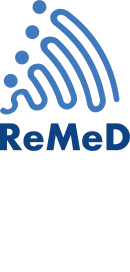This work package, led by the University of Agder, focuses on exploitation of results, impact scenarios and policy recommendations generated by ReMeD.
It will bring together academic research, practitioners’ reflection, and citizen’s views on the relationship between media and democracy in support of the European Union’s role in leading the transformation and defense of pluralistic media by identifying and analyzing policy avenues for a more robust, democratic and effective media governance.
The work package aims to develop policy recommendations, institutional frames, toolboxes, narratives and methodologies for supporting action towards more resilient democracies.
In addition to that, this work package will outline relevant criteria and warnings regarding democratic decline in Europe. Also, it will up an online Observatory for sharing knowledge, engaging stakeholders and provide information for media, citizens, and policymakers. This observatory will serve as monitoring dashboard and provide warnings, visualize levels of trust and distrust in media and serve as repository for presentation of cases, policy recommendations and action plans.
The work package will also formulate scenarios on improved quality, accountability and transparency of media production and distribution processes. This will be done with a focus on regulatory role that private technology providers (alternative media actors) are attributed through public policy arrangements in tackling disinformation
Investigating principles of good governance, especially pertaining to accountability, transparency, and legitimacy (which can serve to increase trust in media), this work package will also translate research knowledge into applicable policies across Europe and formulate and test a set of high-level criteria for choosing among alternative recommendations to contribute to a more resilient democratic institutional framework on media and democracy.
Finally, this work package will investigate the effects of use of digital media design interventions that effectively increase transparency and accountability of media and contribute to reinvigorating democracy. Based on the results, it will work on formulation of policy recommendations that look specifically at the use of democratic participatory practices, perceptions of fairness and equity, crisis resolution mechanisms, neutrality and objectivity of scientific advisors, among others and are specifically tailored for stakeholders involved in policy-making process at the EU and national levels.
